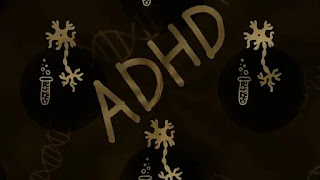Less than 20% of adults with ADHD are diagnosed and receiving treatment currently. It means many are navigating symptoms without any support. One of the things that help adults with ADHD recognize that they have ADHD is tipping points. Read more about what is ADHD tipping points and some real adult ADHD Diagnosis stories below.
What are Tipping Points?
Tipping points usually occur for undiagnosed
people who have an ADHD brain and ADHD strengths and weaknesses. These traits
might not have disabled them because they found ways to compensate, and their
physical and social environments helped with that.
A tipping point for a person with ADHD will
make them feel like they are falling apart. It might also make them feel that
they weren’t good enough but pretending all along. In reality, a tipping point
doesn’t reflect your hard work, intelligence, or competence. It simply reflects
new life circumstances which make it impossible to manage, compensate for, hide or mask
ADHD traits.
Real Adult ADHD Diagnosis Stories
“When I got to graduate school, I knew the
difficulties I faced in my first semester weren’t survivable. I was finally
specializing in what I loved! So, why was I still procrastinating, stressed
out, and anxious? I’d considered the possibility of having ADHD before, but
this time I finally brought it up to my psychologist. My diagnosis changed
everything for the better. I’ll be graduating with my MFA in a few months.” —
An ADDitude Reader
“The pandemic normalized discussions around
mental health in the workplace. When work colleagues opened up about their
current struggles, I realized what I’d been experiencing my whole life wasn’t
the norm. I encountered major burnout, but it prompted me to see a
professional. I just got diagnosed — I’m a 36-year-old female. It has been
life-changing.”— Jaimee, Australia
“In adulthood, I managed to keep it mostly
together. Once perimenopause started to rob my brain of estrogen, what dopamine
I did have was under threat, and then the pandemic hit, and all of my
scaffolding fell away.” — Michelle, Scotland
“My wife was fed up with me and requested I
ask my therapist about an evaluation. She had several bosses with ADHD and
recognized similarities in behavior between them and me. I don’t think we’d
still be married if I didn’t get diagnosed and learn more about how to cope.” —
An ADDitude Reader
“What really helped me see my ADHD was when
I was fired from my job because I was not focused on work or performing well. I
thought back to when I was growing up, and my teachers always called me out for
being a daydreamer and unfocused. It all made sense. I am glad that I have a
name for it now, and I am thankful for all the tools and supports available to
help me.” — An ADDitude Reader
“When I got my first ‘real’ job after
college, it was impossible to keep up while also having a life. I felt behind at
everything, and my symptoms, which were always there, worsened.” — Susana,
Mexico
“After I retired, I didn’t want to join
anything, be anywhere or take care of anything or anybody. I just planned to
sew, but I couldn’t make myself do it. I started to feel really bad and
eventually told my doctor how I felt. He suggested I had ADHD. I would never
have thought of that! Here I was 83, and just being diagnosed with ADHD! I
really wish I had known about this earlier. I’ve always felt that I wasn’t
living up to my potential. Now I don’t need to feel guilty anymore.” — MN
“I was promoted at work, and the role
required a lot more administrative work. I worked 10-hour days and would go to
work on my days off, trying to stay afloat. I became more acutely aware of how
little I was accomplishing. A friend who had been diagnosed as an adult with
ADHD made me seek out a diagnosis.” — Alec, London
“I got evaluated when my daughter (who was
in 1st grade at the time) was diagnosed. When I asked, ‘Why didn’t it occur to
me to seek help earlier?’ my psychiatrist said, “You developed coping
mechanisms, which worked until now.” The system finally gave in when all my
stresses (pregnancy, motherhood, my medical career, taking care of my house and
family, etc.) came together.” — An ADDitude Reader
What to Do When a Tipping Point Occurs?
If you or someone you know has also come
across a tipping point, a smart thing would be to reach out to your family
doctor or a mental health professional for help and support.
You can also contact the Centre for ADHD
Awareness in Canada here.
Sources:
https://www.additudemag.com/tipping-point-adult-adhd-diagnosis/
https://mosaicofminds.medium.com/adhd-tipping-points-why-people-with-adhd-suddenly-seem-to-fall-apart-and-what-you-can-do-about-it-f5ed6418b1e5
https://psychcentral.com/adhd/warning-signs-of-tipping-points-in-an-adhd-life



